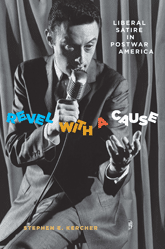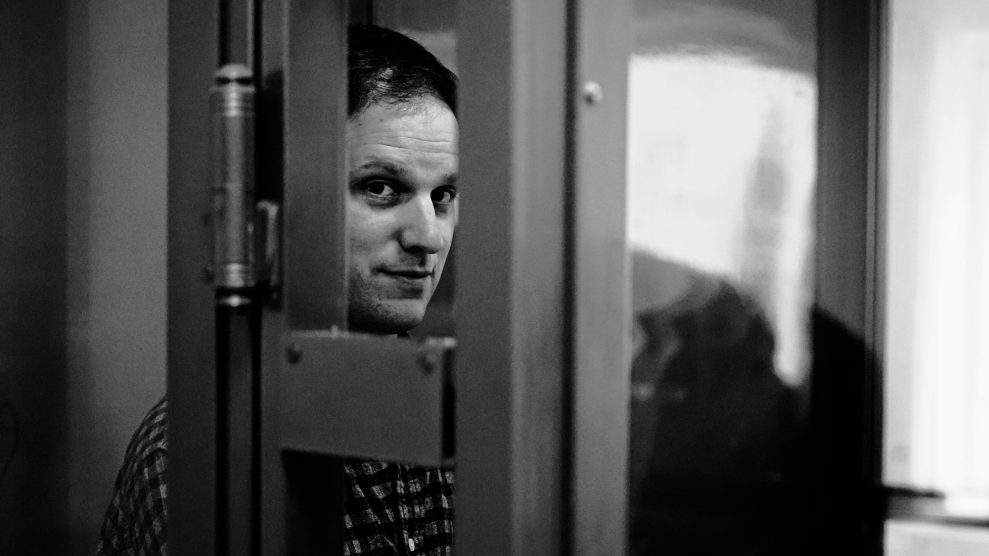
Revel With a Cause—a scholarly, in-depth look at two decades of postwar protest humor—left me wondering whether protest humor does anything more than provide catharsis. Does it actually change anything? Or as one plucky skeptic expressed back in 1964, could satire “not merely be futile but positively evil, in that it provides…a safety valve for righteous indignation”? When I’m doing political stand-up, I suspect I’m validating the sensibilities of the choir. At best, when I’m performing politically charged material for a truly diverse crowd—socially, economically, politically—it lets people who disagree with me experience how my comedic point of view is shared by people sitting right next to them who are laughing, and to the extent that laughter itself can be so contagious, sometimes people will open up just a crack. Is that a safety valve? In the sense that it keeps people sane, yes.
This book captures all these comedic voices—Jules Feiffer, Mad magazine, Second City, Mort Sahl, Tom Lehrer, Nichols and May, Stanley Kubric—rallying in a spontaneous rebellion against Cold War orthodoxy, McCarthyism, sexual repression, segregation, and the specter of “the bomb.” What animates Revel most is the emergence of Sahl and Lenny Bruce. After Sahl’s Broadway debut in 1958, a critic noted it as the dawn of a long overdue return to dissent, “an indication that something in our society has begun—after too many muddy and fearful years—to change. First thing you know, irreverence will be in vogue again and even satire may wear its old, outrageous and becoming smile.” By the time Bruce joined the pantheon to take all the other so-called satirists to school, the United States had become the world’s “prime incubator of nonconformist nightclub wit.” But Bruce was ruined by his indecency trials and Sahl’s obsession with the Kennedy assassination dated him, leaving a satirical void until George Carlin—outside the period of this book—picked up where Bruce left off.















